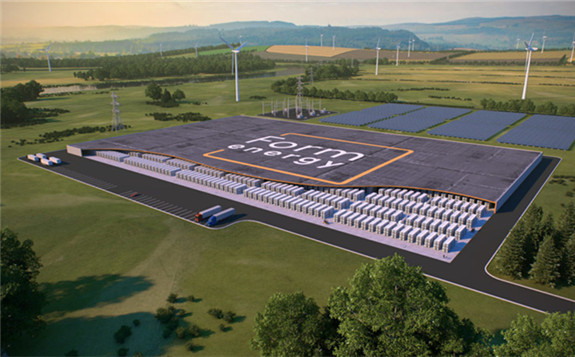Solar and wind power have variability in their productive hours, as multi-day weather events can impact output. Therefore, multi-day storage that is cost-effective is important in grid reliability.

Boston startup Form Energy developed technology to address this need, revealing recently the chemistry behind their iron-air batteries. The company said its iron-air batteries can store renewables-sourced electricity for 100 hours at system costs competitive with conventional power plants. At full-scale production, Form Energy said the modules would deliver electricity at a tenth of the cost of lithium-ion batteries.
The iron-air battery is composed of cells filled with thousands of iron pellets that are exposed to air and create rust. The oxygen is then removed, reverting the rust to iron. Controlling this process allows the battery to be charged and discharged.
$200 million in Series D funding has been secured for the project, led by $25 million from ArcelorMittal’s XCarb innovation fund. ArcelorMittal will non-exclusively supply the iron materials for the battery system production, and Form Energy said it intends to source its iron domestically, manufacturing the batteries near where the iron was sourced.
The company’s first project is a 1 MW / 150 MWh pilot installation with Minnesota-based utility Great River Energy, located near the American Iron Range. Form Energy said it expects to have the facility deployed at a Great River Energy power plant by 2023.
Mateo Jaramillo, CEO and Co-founder of Form Energy, said, “We conducted a broad review of available technologies and have reinvented the iron-air battery to optimize it for multi-day energy storage for the electric grid. With this technology, we are tackling the biggest barrier to deep decarbonization: making renewable energy available when and where it’s needed, even during multiple days of extreme weather or grid outages.”